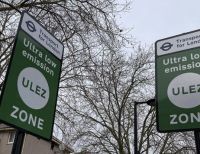A new analysis of crime rates in 27 cities across 23 countries in Europe, the Americas, Asia and the Middle East has found that stay-at-home policies during the pandemic led to an overall drop in police-recorded crime of 37% across all the sites in the study.
A team of criminologists led by the University of Cambridge and University of Utrecht examined trends in daily crime counts before and after COVID-19 restrictions were implemented in major metropolitan areas such as Barcelona, Chicago, Sao Paulo, Tel Aviv, Brisbane and London.
While both stringency of lockdowns and the resulting crime reductions varied considerably from city to city, the researchers found that most types of crime – with the key exception of homicide – fell significantly in the study sites.
Across all 27 cities, daily assaults fell by an average of 35%, and robberies (theft using violence or intimidation, such as muggings) almost halved: falling an average of 46%. Other types of theft, from pick-pocketing to shop-lifting, fell an average of 47%.
“City living has been dramatically curtailed by COVID-19, and crime is a big part of city life,” said Prof Manuel Eisner, Director of the Violence Research Centre at the University of Cambridge and senior author of the study published today in the journal Nature Human Behaviour.
“No drinkers spilling into the streets after nights out at bars and pubs. No days spent in shops and cafés or at the racetrack or football match. Some cities even introduced curfews. It choked the opportunism that fuels so much urban crime.”
“We found the largest reductions in crimes where motivated offenders and suitable victims converge in a public space. There would be far fewer potential targets in the usual crime hotspots such as streets with lots of nightclubs,” said Eisner.















